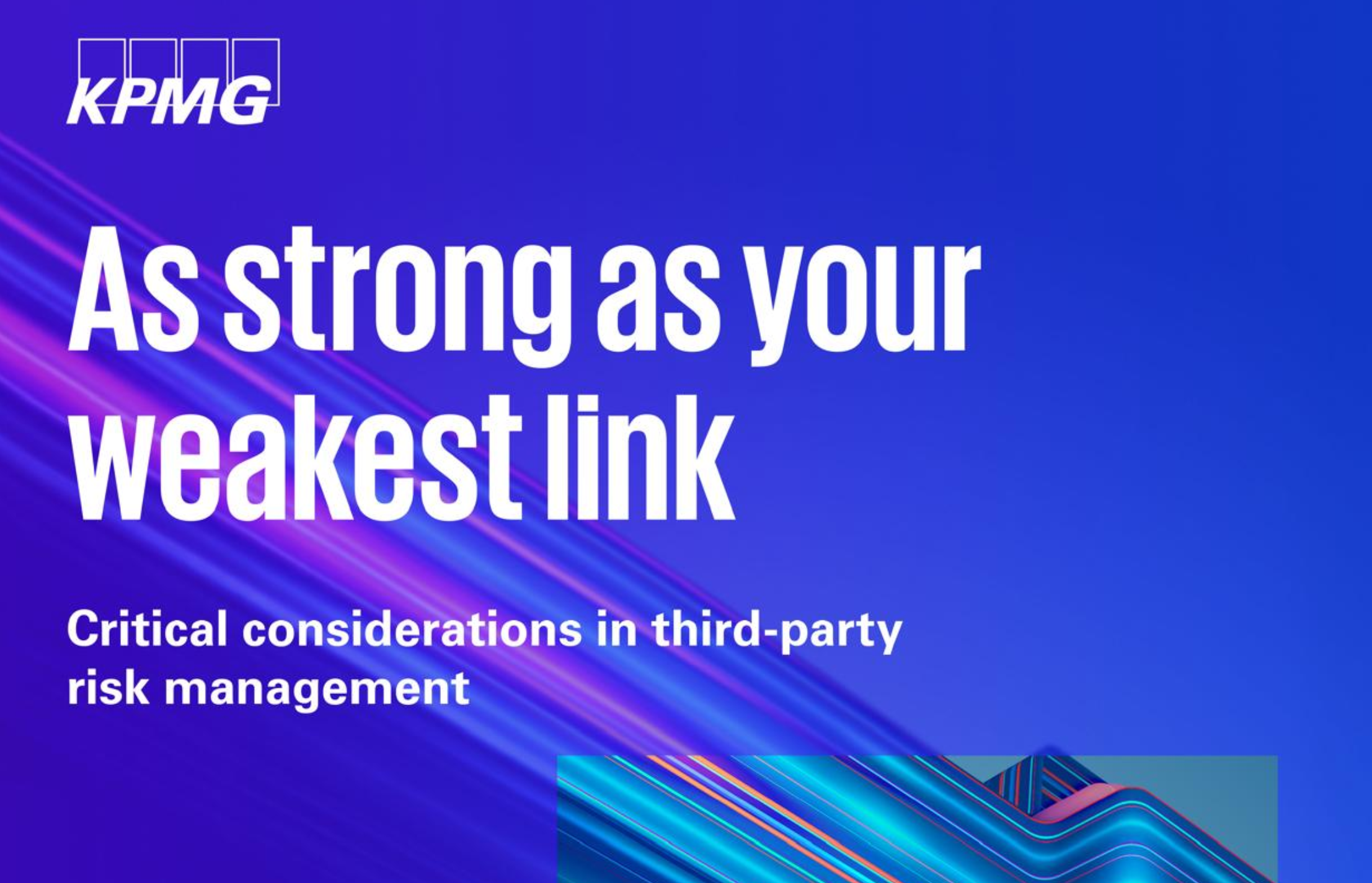
KPMG report warns: your business is only as secure as your weakest vendor
As businesses increasingly rely on external partners to power their operations—from cloud services to logistics and software—a new report by KPMG Middle East urges leaders to pay closer attention to a growing but often overlooked vulnerability: third-party cyber risk. A new report titled “As strong as your weakest link: Critical considerations in Third-Party Risk Management” explores how external vendors, while essential to business growth and efficiency, are becoming a major entry point for cyber threats.
The message is simple but urgent: even if your company invests heavily in cybersecurity, a single weak link in your vendor chain can compromise it all. Recent examples—from high-profile data breaches to regulatory fines—reveal just how much damage can stem from gaps in third-party oversight. The report highlights that 73 percent of surveyed organizations admitted that inefficiencies in how they manage third-party risk have left them exposed to reputational damage. Alarmingly, nearly every company studied—98 percent—had at least one vendor suffer a cyber breach in the past two years.
“These aren’t hypothetical risks—they’re real, and they’re growing,” said Ton Diemont, Partner and Head of Cybersecurity – Saudi Arabia, Jordan and Lebanon at KPMG Middle East. “Attackers today are strategic. They don’t just target big corporations directly. They look for the weakest partner in the supply chain and exploit the lack of visibility or oversight. That’s why managing vendor relationships is no longer just a procurement concern—it’s a business-wide priority.”
The report sheds light on a number of recurring challenges. Many businesses continue to struggle with limited insight into their vendors’ cybersecurity practices. Contracts often lack clarity on key issues like breach reporting or data protection, and small or mid-sized companies in particular may not have the resources to properly assess every third-party they work with. In some cases, vendors themselves rely on subcontractors—adding yet another layer of complexity. When something goes wrong, these blind spots can quickly lead to operational disruption, regulatory penalties, or loss of customer trust.

Ton Diemont, Partner and Head of Cybersecurity – Saudi Arabia, Jordan and Lebanon at KPMG Middle East
While the risks are serious, the report also outlines a clear path forward. Companies that have taken a structured approach to third-party risk management—by thoroughly vetting vendors before onboarding, embedding cybersecurity requirements into contracts, and implementing continuous monitoring—have shown greater resilience and faster response when incidents occur. KPMG's experience advising organizations across the Middle East shows that those who treat vendor risk as a core governance issue, rather than a one-off compliance task, are better prepared to adapt as threats evolve.
The report also looks to the future—specifically, how generative AI is transforming the way companies can manage third-party risks. By automating time-consuming tasks like contract reviews, compliance checks, and threat detection, AI is helping teams work smarter, respond faster, and reduce operational costs. “This is a major shift,” adds Diemont. “We’re moving from reactive to proactive. Businesses that embed AI into their vendor risk processes are not only more secure—they’re also more agile and cost-effective.”
What’s clear is that third-party risk is no longer just a technical issue—it’s a strategic one. And in today’s regulatory landscape, staying ahead of it is becoming non-negotiable. As countries like the UAE and Saudi Arabia strengthen compliance requirements, organizations that lack a strong third-party risk framework may find themselves falling short, not just in audits, but in trust.
“This isn’t just about technology,” added Mohammed Alshaghdali, Associate Director and TPRM Lead at KPMG Middle East. “It’s about protecting relationships. When you secure your extended network—your vendors, partners, and suppliers—you’re also safeguarding your customers, your reputation, and the future of your business.”

Mohammed Alshaghdali, Associate Director and TPRM Lead at KPMG Middle East








